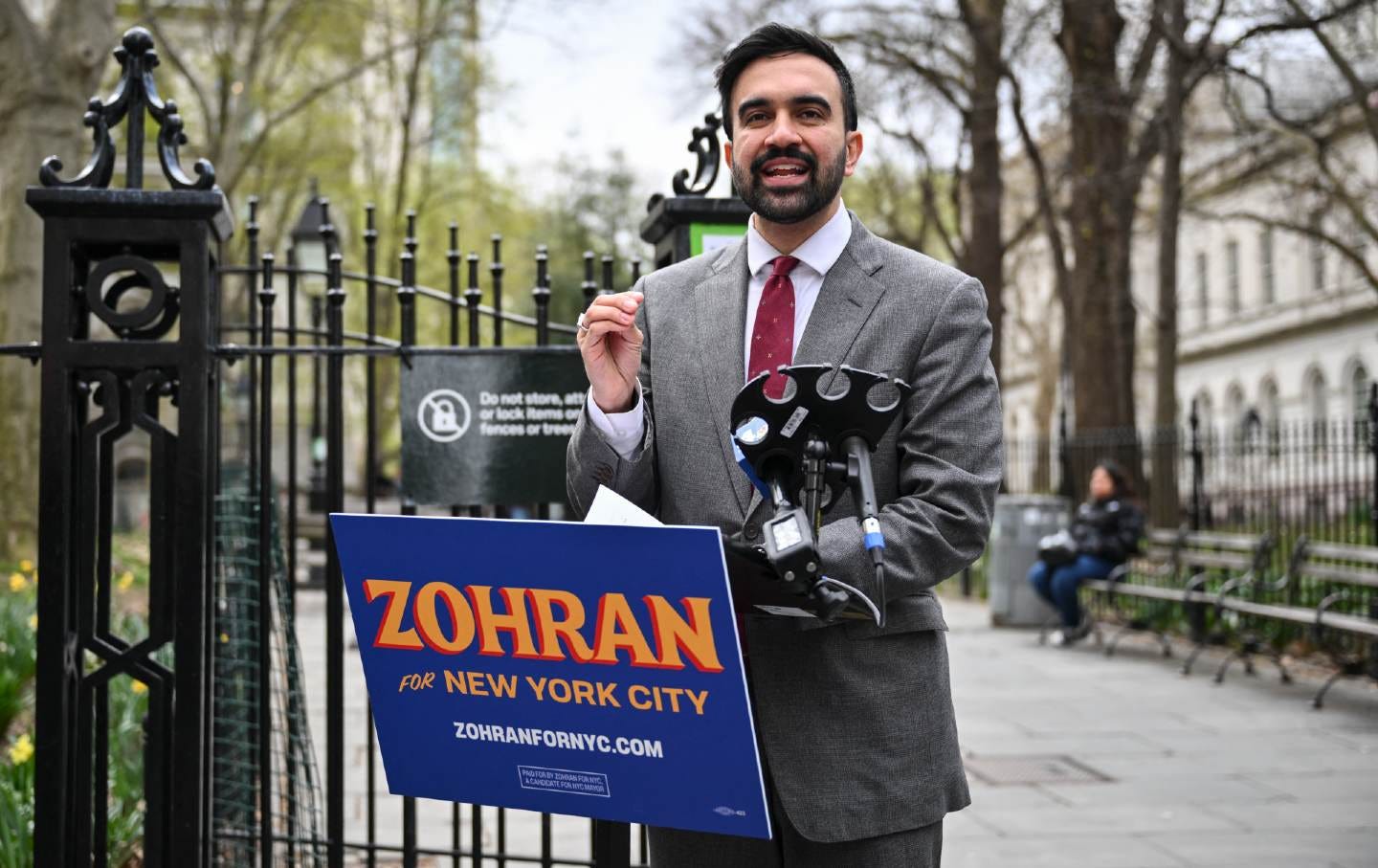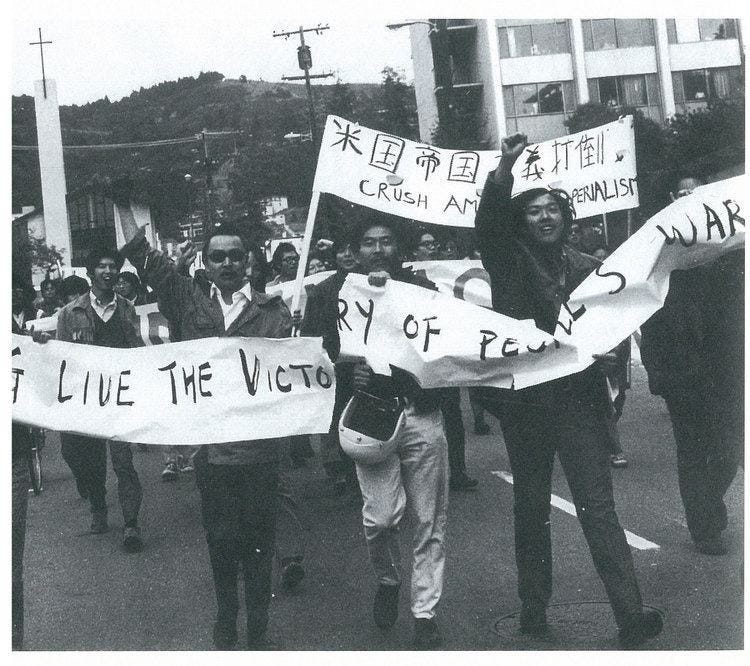There’s a lot of understandable jubilation at Zohran Mamdani’s upset victory in the New York City Democratic primary for mayor. Nationally, liberal talking heads have been counseling Democrats to “moderate” their positions to regain power. In practice, this usually boils down to advising liberal candidates to throw immigrants and trans people under the bus in their quest for elected office. Against a backdrop of such cowardly triangulation, an unapologetic democratic socialist candidate looks poised to take office in the largest city in the US.
But it’s too early to pop the champagne, and not just because Mamdani will still need to beat Cuomo and Adams in this fall’s general election. I’m not looking down my nose at his platform because I don’t find it “radical” enough: a NYC rent freeze and free buses sound just swell to me, so I hope that he succeeds. But what would success really look like? The history of electoral socialism in the US demonstrates exactly what will be demanded of him—and us.
We’ve seen this movie before.
In the decades after the defeat of the 1960s New Left, a wave of quasi-socialist politicians actually took power across the United States. In 2011, Oakland, California elected Jean Quan, a former student organizer who took part in the Third World Liberation Front strike that birthed the discipline of Ethnic Studies. The daughter of a restaurant owner who risked her scholarship to support the Delano grape boycott, she had joined the Asian-American Political Alliance, formed by Richard Aoki as the Asian-American version of the Panthers. After graduation, Quan was a labor organizer who fought to stop the eviction of elderly Filipino farmworkers from the International Hotel.
Across the Bay, San Francisco elected Mayor Ed Lee, himself an former civil rights lawyer who became a civil rights lawyer for San Francisco’s Asian Law represented two hundred tenants during Chinatown’s first rent strike and fought the demolition of working-class housing for redevelopment. Some hailed the advent of “Red Chicago” after six socialists won seats on city council in 2019. And before Eric Adams, New York City’s mayor was Bill de Blasio, who actually volunteered in Nicaragua’s socialist Sandinista Revolution. In the early 90s, NYC was helmed by card-carrying DSA member David Dinkins. If a mayoral election were enough to turn New York City socialist, NYC would already be socialist.
But David Dinkins tried to beat allegations of being “soft on crime” by expanding the NYPD by 25%. After Bill de Blasio was elected, he restored a program granting tax exemptions to new private developments for a generation after their construction, so long as a minority of their units were initially “affordable”—though there was no prohibition on raising rents immediately thereafter. Ed Lee welcomed Twitter into San Francisco and oversaw the largest expansion of gentrification and income inequality of perhaps any contemporary American city. Jean Quan headed up the vicious repression of Occupy Oakland, when an Iraq veteran protester’s skull was cracked open by a police bean-bag round. Despite their progressive credentials, these candidates ended up governing much like any other capitalist politician once they took office.
There’s a good reason for this, and it’s not (just) that their beliefs were insincere. The whole point of thinking about structures like capitalism, patriarchy, or white supremacy is recognizing structural power beyond the intentions or beliefs of any individual actor. The problem with capitalism isn’t that particular business owners are greedy, it’s that the system of private ownership requires exploitation and poverty. The problem with patriarchy isn’t that all men happen to be evil and all non-men happen to be saints. The problem is the system that secures wealth, power, and safety for one gender at the expense of others.
We should think about state power in the same systematic way. It’s true—some politicians are especially terrible, just like some bosses are particularly noxious and some men are exceptionally patriarchal. But there are structural reasons for all men to take advantage of the privileges of patriarchy, whether we’re personally bigoted or not. Similarly, there are structural forces pressuring leftists in elected office to abandon their positions, entirely independent of their degree of personal ideological commitment.
To govern successfully and win re-election, every mayor needs to prevent capital flight, since if city coffers are depleted, there’s no way to fund their agenda. Every mayor needs to appease local power blocs, which invariably include overtly reactionary institutions like police unions and the Chamber of Commerce. Every mayor needs to retain the support of the repressive arm of the state, law enforcement, or there will be nobody to enforce the laws they sign. To get appropriate laws on their desk, every mayor needs supporters among city council members, all of whom are beholden to their own bases of power. These things are true whether a mayor’s a MAGA populist or… well, Zohran Mamdani.
What it all means.
As Suchitra Vijayan writes:
Let’s say Mamdani wins, not just the primary, but the whole damn thing. He still has to govern a city, he will inherit an NYPD with drones, facial recognition systems, predictive policing software, and an international outpost in Tel Aviv.
If Mamdani wins, will that make the NYPD a socialist institution? Will Rikers Island become a socialist jail? Will Wall Street host a socialist stock exchange? Obviously not. I’m not raising this point because I think change has to happen overnight to count. But if our movements rest on their laurels after electing someone with a progressive agenda, we are ensuring that their agenda will never be achieved.
If you want progressive policies to become law, you should organize autonomous, fighting social movements outside of the state. An autonomous counter-power incentivizes all politicians, from left to right, to adopt less-terrible policies. It gives more sympathetic elected officials political cover to roll out their agendas. But this means mobilizing beyond elections and enacting democracy beyond the state (a topic I’ve written about for the Institute for Anarchist Studies’s Lexicon series).
For decades, electoral socialists have held up progressive candidates as silver bullets for the ravages of American capitalism, gotten them into office, and then cursed their sudden but inevitable betrayal of oppressed communities before starting the whole process anew with another candidate. It’s high time we demanded more.
This post has been syndicated from In Struggle, where it was published under this address.



